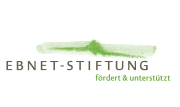The INTERCARE nurse-led model of care consists of six core elements.
These six core elements are outlined below to show how the nurse-led model of care can evolve through dedicated, positive, transformational and visionary leadership.
Interprofessional Care Team
The focus for all staff involved are the residents receiving care in the nursing homes. All staff is jointly responsible for improving care. This includes taking into account the competences of all staff involved, coordinating communication processes and promoting mutual appreciation, as well as supporting a goal-oriented collaboration between all team members.
INTERCARE Nurses
INTERCARE nurses are registered nurses with experience in long-term care and expertise in geriatric conditions and symptoms. In everyday activities, they work closely with the nursing home leadership, especially with ward leaders. The focus of their work is:
Coaching. Central tasks of INTERCARE nurses are informal training such as the direct coaching of employees at the resident level, as well as formal support, for instance leading case discussions or the planning and implementation of training to meet identified needs. This ensures continuous development of the nursing staff.
Clinical leadership. INTERCARE nurses are responsible for clinical leadership in the main topics of INTERCARE. They promote the implementation of advance care planning and evidence-based instruments.
Interface for interprofessional cooperation. INTERCARE nurses support and promote collaboration between different professional groups so that shared decisions can be made and mutual learning facilitated through exchange of experience.
Clinical activities. In complex situations, INTERCARE nurses carry out assessments and physical exams together with the nursing staff and the physician involved as part of comprehensive geriatric assessment. Based on the results, an individual treatment plan is created together with the resident and/or relatives and the nursing process is carried out.
INTERCARE nurses accompany and support the nursing staff in their clinical reasoning and planning of nursing activities.
Comprehensive Geriatric Assessment
For comprehensive geriatric assessment, the interprofessional team conducts a standardized assessment of the residents’ health situation and draws up an individual treatment plan. The INTERCARE nurses assist the nursing staff in the implementation of the nursing process. The goal is to improve existing functional limitations and prevent further decline of residents. The individual abilities and the well-being of the inhabitants are placed at the center.
Advance Care Planning
Advance care planning takes place in ongoing discussions between residents, their relatives and the interprofessional care team. INTERCARE supports the development of a culture for advance care planning.
Evidence-based Tools
INTERCARE provides three tools to support interprofessional collaboration and to avoid hospital admissions:
- Employees and INTERCARE nurses use the ISBAR tool during the visit or when calling a doctor, in order to provide physicians with structured information about the condition of the resident.
- STOP and WATCH enables rapid identification and transmission of changes to residents’ conditions, in particular by assistants and relatives, but also by other employees.
- INTERCARE nurses use the reflection tool to reflect together with the persons involved whether hospital admissions were avoidable and where improvement processes might be initiated.
Data-based Quality Development
Continuous data collection and regular feedback allow for problems linked with quality of care to be quickly identified. Appropriate measures to improve the quality of care can be planned and implemented.
INTERCARE regularly provides nursing homes with benchmarking reports displaying results for national quality indicators (pain, weight loss, polypharmacy, physical restraints) based on data from resident assessment instruments and feedback on hospital admissions.


